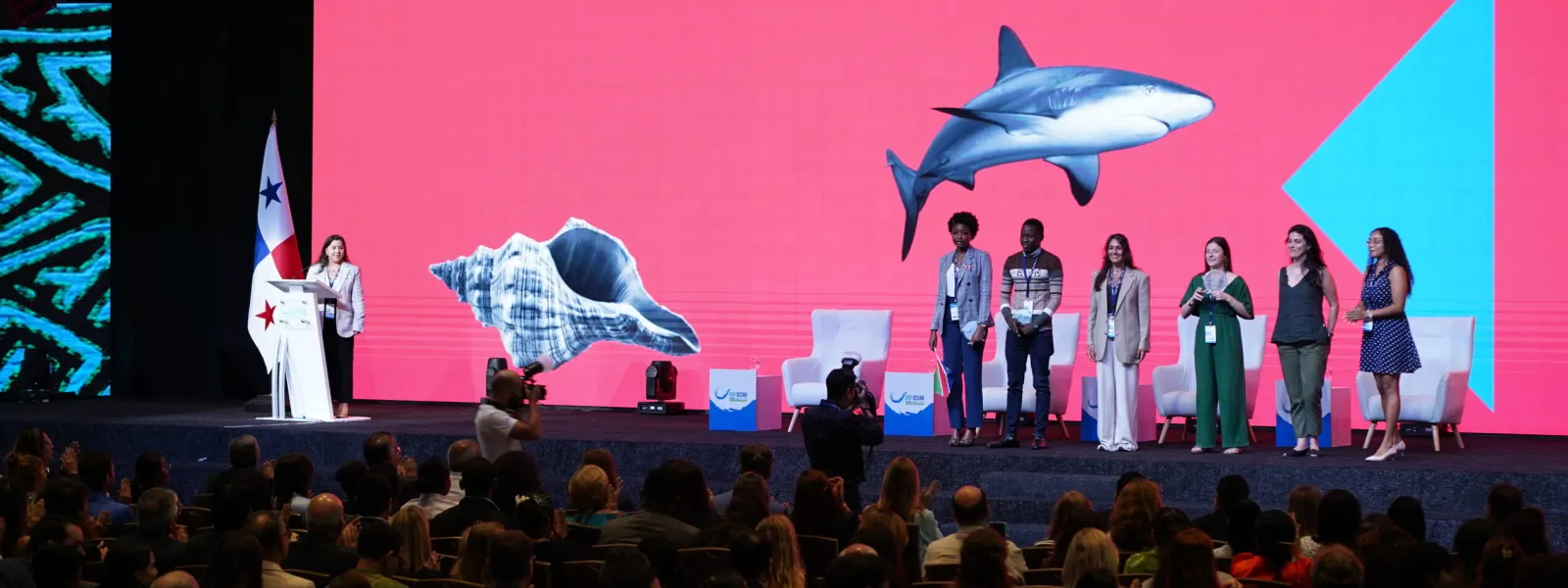
Commitments to marine conservation: A look back at Our Ocean 2023
Photo: Ministerio de Relaciones Exteriores de Panamá."Our ocean, our connection."
That was the theme of the eighth Our Ocean Conference, held March 2-3 in Panama, the first Latin American country to host the annual event.
The conference began in 2014 as an initiative of the U.S. State Department to draw international attention to the serious global threats to the ocean and to secure to concrete commitments for marine conservation and sustainable development.
The event brought together heads of state and representatives of the private sector, civil society and academic institutions under the specific objective of highlighting the urgency of implementing effective area-based management measures as part of interconnected systems including marine protected areas, the development of a global blue economy, and approaching innovative solutions to marine pollution.
An AIDA delegation attended the conference and participated in the plenary sessions and side events. The following is a summary of the event.
The inspiring
The focus of the conference
Our Ocean is not a space for sharing knowledge about this vast ecosystem and its biodiversity. The environmental community already knows for certain that the ocean must be effectively protected as soon as possible and that there is no need to present further evidence of the multiple services it has provided to humanity for centuries. The conference brought together leaders and ministers to advance international agreements and pressure nations to commit to taking the necessary steps to protect the ocean.
The power of a generation
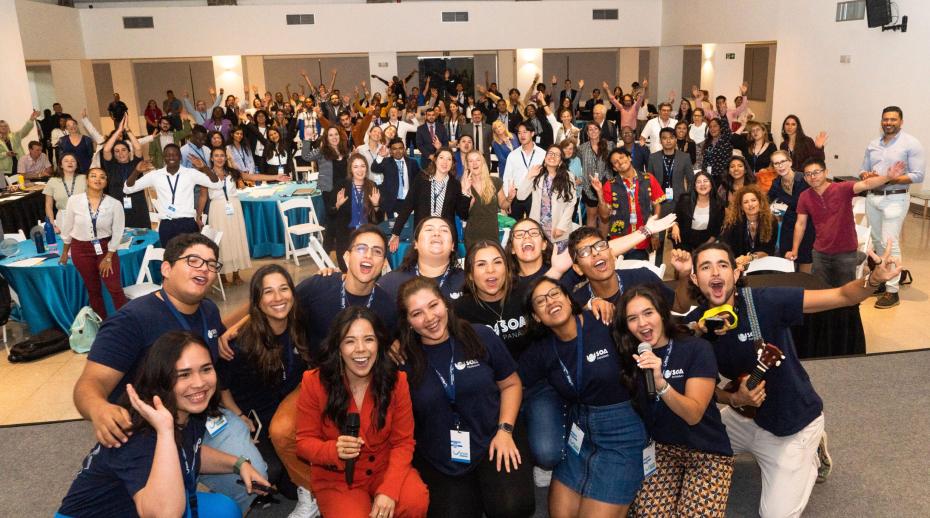
The voice of youth was prominent throughout the conference, represented for example by more than 70 members of the Sustainable Ocean Alliance (SOA), which since 2014 has built the world's largest network of new generations of people working to create solutions to the ocean's greatest challenges. Hearing youth leaders speak passionately about the importance of caring for the planet for generations to come was encouraging.
As the youngest member of AIDA, I found inspiration in meeting other young people advocating for the ocean and its biodiversity. In my daily work I’m surrounded by news and numbers about the damage humanity has caused to the ocean and being part of this conference helped me see the other side of the coin. Those of us who are actively working for a healthier, cleaner and more protected ocean are part of the change and, in large part, it is thanks to us that high officials have stopped to look at the evidence and take concrete action. It is this generation that will inherit the management of the ecological crisis, whose voice deserves to be reflected in commitments to improve the way we relate to the ocean.
The positive
Support for seabed defense
AIDA co-hosted a side event on deep-sea mining with the not-so-simple task of bringing together decision-makers to support a moratorium on deep-sea mining and seabed protection. Thanks to the impetus of a group of co-organizers—including young people from Comms Inc, The Oxygen Project, Only One and SOA—Palau President Surangel Whipps Jr. and Fiji Prime Minister Sitiveni Rabuka attended the event. High-level representatives from Latin American and European countries also attended.
It was a space for dialogue between civil society and invited authorities that resulted in encouraging commitments, including France's commitment (seconded by Germany) to invest in scientific research of the seabed and to stop investments in industrial processes related to deep-sea mining. World-renowned oceanographer Sylvia Earle touched the audience with her love for the ocean and her undying commitment to its protection. Those who attended reaffirmed their commitment to the moratorium and the search for alternatives.
Commitments to marine biodiversity
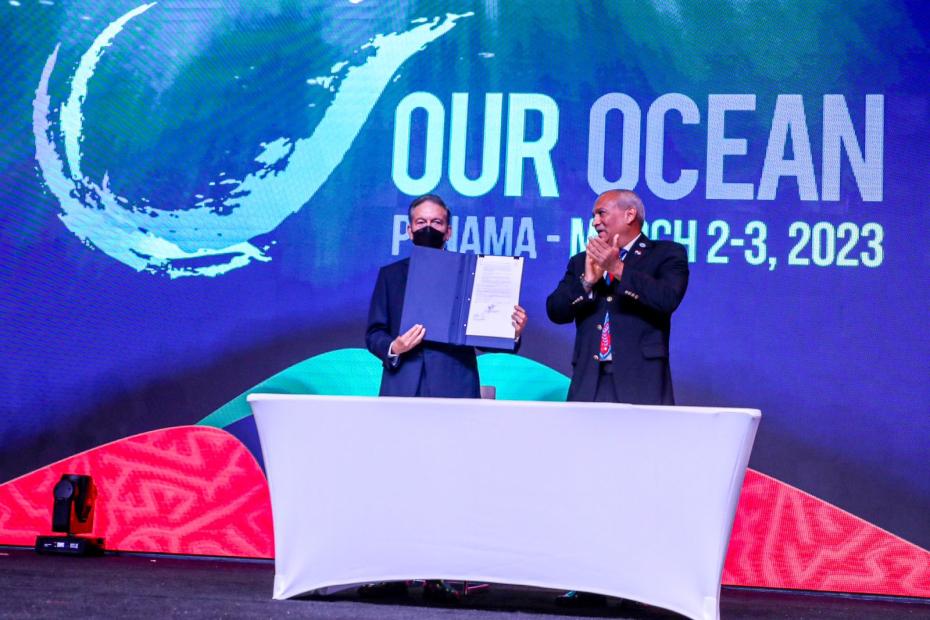
Overall, the conference provided a unique platform for several nations to make valuable commitments. Participating government delegations made 341 commitments worth nearly $20 billion, including funds to expand and enhance marine protected areas and biodiversity corridors.
In Latin America, Panama announced the expansion of Banco Volcán, a marine reserve in the Caribbean, from 14,212 to 93,000 square kilometers. With this, Panama will be protecting 54 percent of its exclusive economic zone, meeting the goal of protecting 30 percent of its territory by 2030. And Ecuador committed to protecting its first eighty nautical miles (14,800 square kilometers), allowing for only artisanal fishing. This decision positions Ecuador as a Latin American leader in marine conservation and sustainable natural resource management. Ecuador called on the other countries that make up the Pacific Marine Corridor—Costa Rica, Panama and Colombia—to take similar measures to preserve one of the most biodiverse spaces in the ocean.
What's next?
Nations are now expected to comply with their announced commitments. In the region, Panama and Ecuador must expand their protected territories, ensuring the adequate monitoring of biodiversity and the sustainable management of resources.
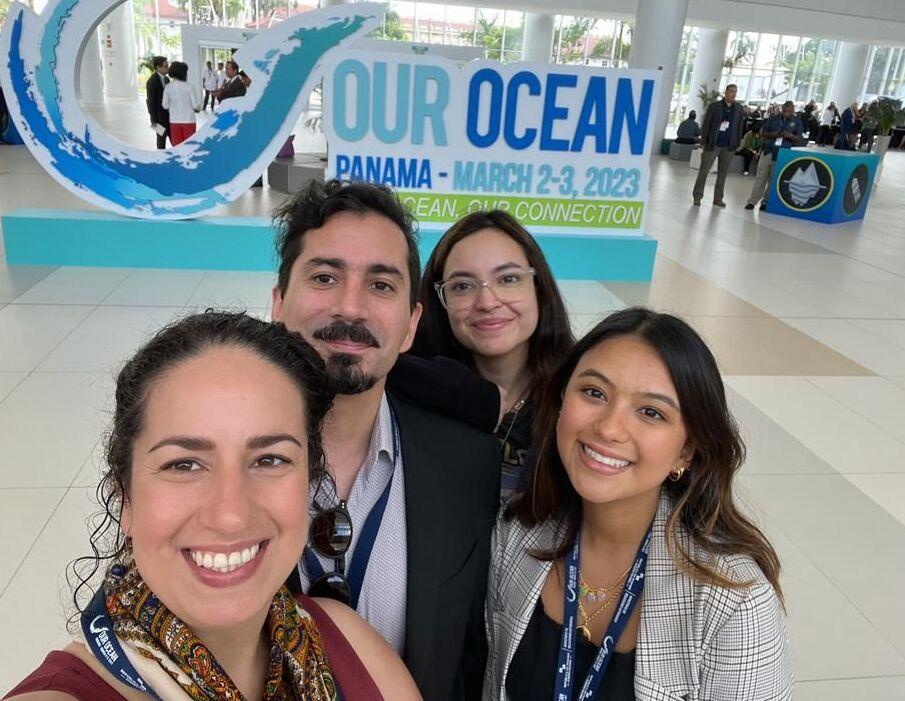
Similarly, it is expected that the countries of the Pacific, Latin America and the European Union that have declared their support for halting deep-sea mining will continue with actions consistent with that position, including active participation in meetings of the Seabed Authority, supporting the moratorium or precautionary pause on extractive activity.
While there is certainly a long way to go, each decision announced at the conference in favor of preserving marine biodiversity provides some hope and motivation for our work. We will continue to collaborate with governments and communities to preserve the ocean, the planet's largest and most diverse ecosystem.
María Paula Conrado Martínez
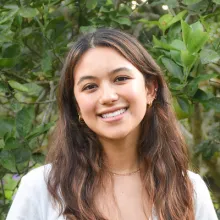
María Paula Conrado is Colombian and a scientist in AIDA's Ocean Program. She is a biologist from the Universidad de los Andes in Bogotá, Colombia. During her studies, she made proposals for marine conservation projects in the Colombian Pacific, involving local communities. At AIDA, María Paula contributes to biodiversity conservation efforts and the proper management of natural resources.
